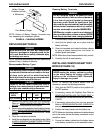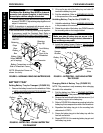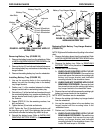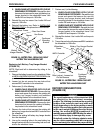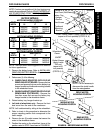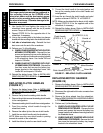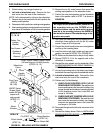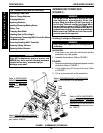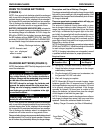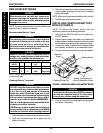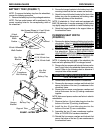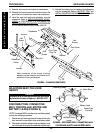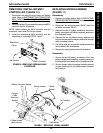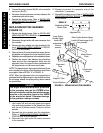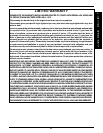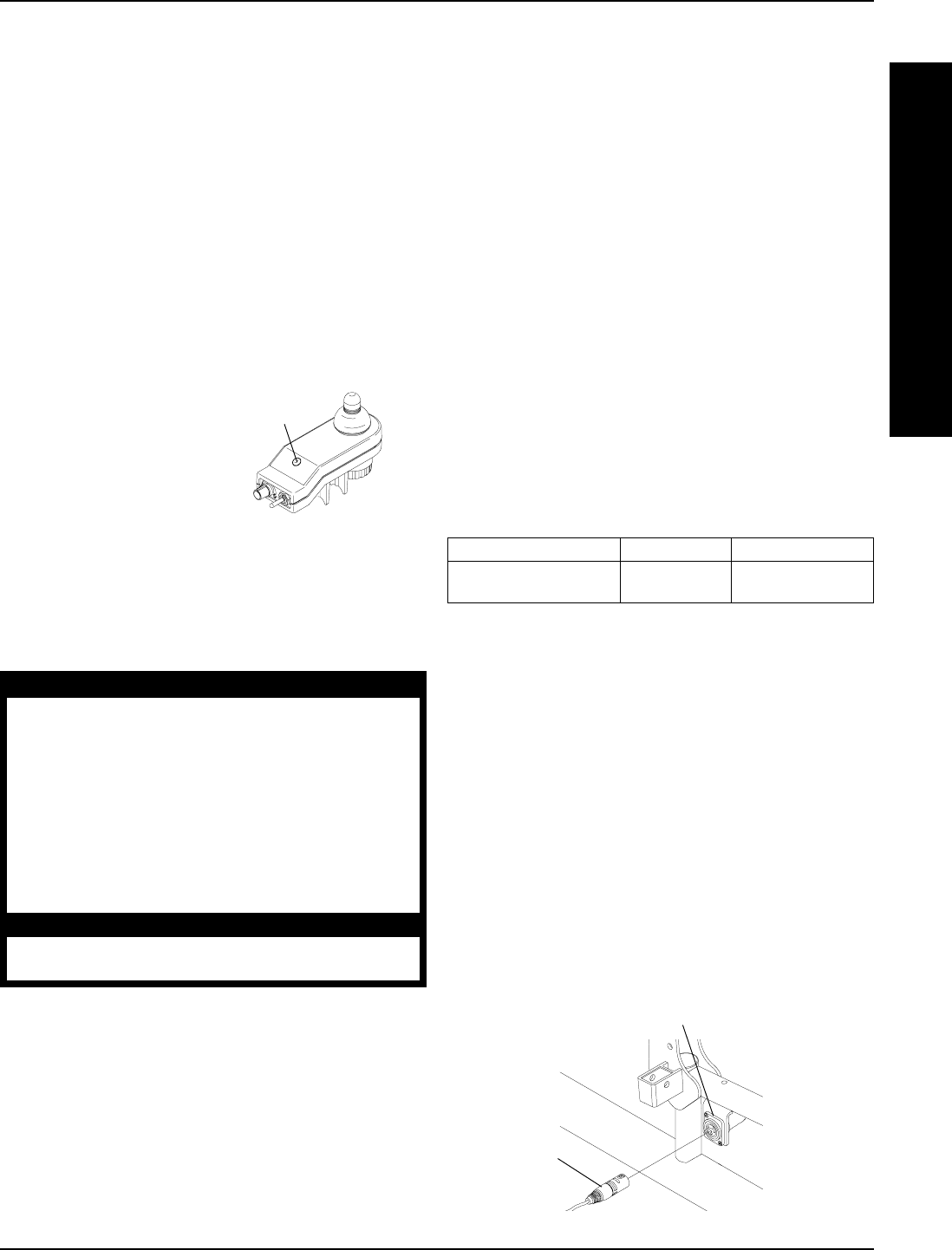
41
1. Attach the battery charger connector to the charger
cable/battery harness.
2. Plug the charger’s AC power cord, or extension, into
the grounded 120 VAC wall outlet.
3. Wait until charging is complete.
NOTE: Allow eight (8) hours for normal charging. Larger
batteries (greater than 55 ampere-hours) or severely
discharged batteries may require up to sixteen (16) hours
to be properly charged and equalized. If the charger
operates for sixteen (16) hours and is unable to fully
charge the batteries, an internal timer turns the charger
off and begins to fast blink the green light.
NOTE: If the batteries need to be charged more often or
take longer to charge than normal, they may need to be
replaced. Contact an authorized dealer for service.
From Battery
Charger
Battery Charger Connector (on Side of Wheelchair)
FIGURE 5- CHARGING BATTERIES
FIGURE 4 - WHEN TO CHARGE BATTERIES
WHEN TO CHARGE BATTERIES
(FIGURE 4)
NOTE: As a general rule, batteries should be recharged
daily to assure the longest possible life and minimize the
required charging time. In fact, a battery’s life is extended if
the charge level is maintained well above a low condition.
Plan to recharge the batteries when it is anticipated the
wheelchair will not be used for a long period of time.
BATTERY DISCHARGE INDICATOR (BDI) is located at
the rear of the joystick housing and provides information on
the remaining charge in the batteries. At FULL charge the
BDI will be GREEN. As the battery becomes discharged,
the BDI indicator will turn AMBER (YELLOW), then RED
and finally FLASHING RED. If the BDI is FLASHING RED,
the user should charge the batteries as soon as possible.
Description and Use of Battery Chargers
The charger automatically reduces the charge from an initially
high rate to a zero reading at a fully charged condition. If left
unattended, the charger should automatically shut-off when
full charge is obtained.
There are some basic concepts which will help you
understand this automatic process:
The amount of electrical current drawn within a given
time to charge a battery is called “charge rate”. If, due to
usage, the charge stored in the battery is low, the charge
rate is high, as indicated by the green light on the char-
ger. Initially, the green light will stay illuminated for a short
period of time followed by a longer period of off time. As
a charge builds up, the charge rate is reduced, and the
green light will stay illuminated for a longer period of time
followed by a shorter off time.
NOTE: If performing the charging procedures independently,
READ and CAREFULLY follow the individual instructions
for each charger (supplied or purchased).
NOTE: If charging instructions are not supplied, consult
a qualified service technician for proper procedures.
Required Items:
TOOL QUANTITY COMMENTS
Battery Charger 1 Supplied
✪✪
✪✪
✪ Extension Cord 1 Not Supplied
✪ 3-prong plug, 15 ampere current rating; industrial type
NOTE: Accurate read-
ings are displayed
when in neutral.
Battery Discharge Indicator
R
W
D
W
H
E
E
L
C
H
A
I
R
S
CHARGING BATTERIES (FIGURE 5)
NOTE: New batteries MUST be fully charged prior to initial
use of the wheelchair.
WARNING
Never attempt to recharge the batteries by attach-
ing cables directly to the battery terminals or
clamps. Always use the recharging plug located
on the side of the wheelchair frame.
DO NOT attempt to recharge the batteries and
operate the power wheelchair at the same time.
During use and charging, unsealed batteries will
vent hydrogen gas which is explosive in the right
concentration with air.
CAUTION
Always charge new batteries before initial use or
battery life will be reduced.
NOTE: As a general rule, batteries should be recharged
daily to assure the longest possible life and minimize the
required charging time. In fact, a battery’s life is extended if
the charge level is maintained well above a low condition.
Plan to recharge the batteries when it is anticipated the
wheelchair will not be used for a long period of time.
Range per battery charge using recommended batteries should
be approximately 5 to 9 hours of typical operation. Extensive
use on inclines may substantially reduce per charge mileage.
PROCEDURE 9RWD WHEELCHAIRS



